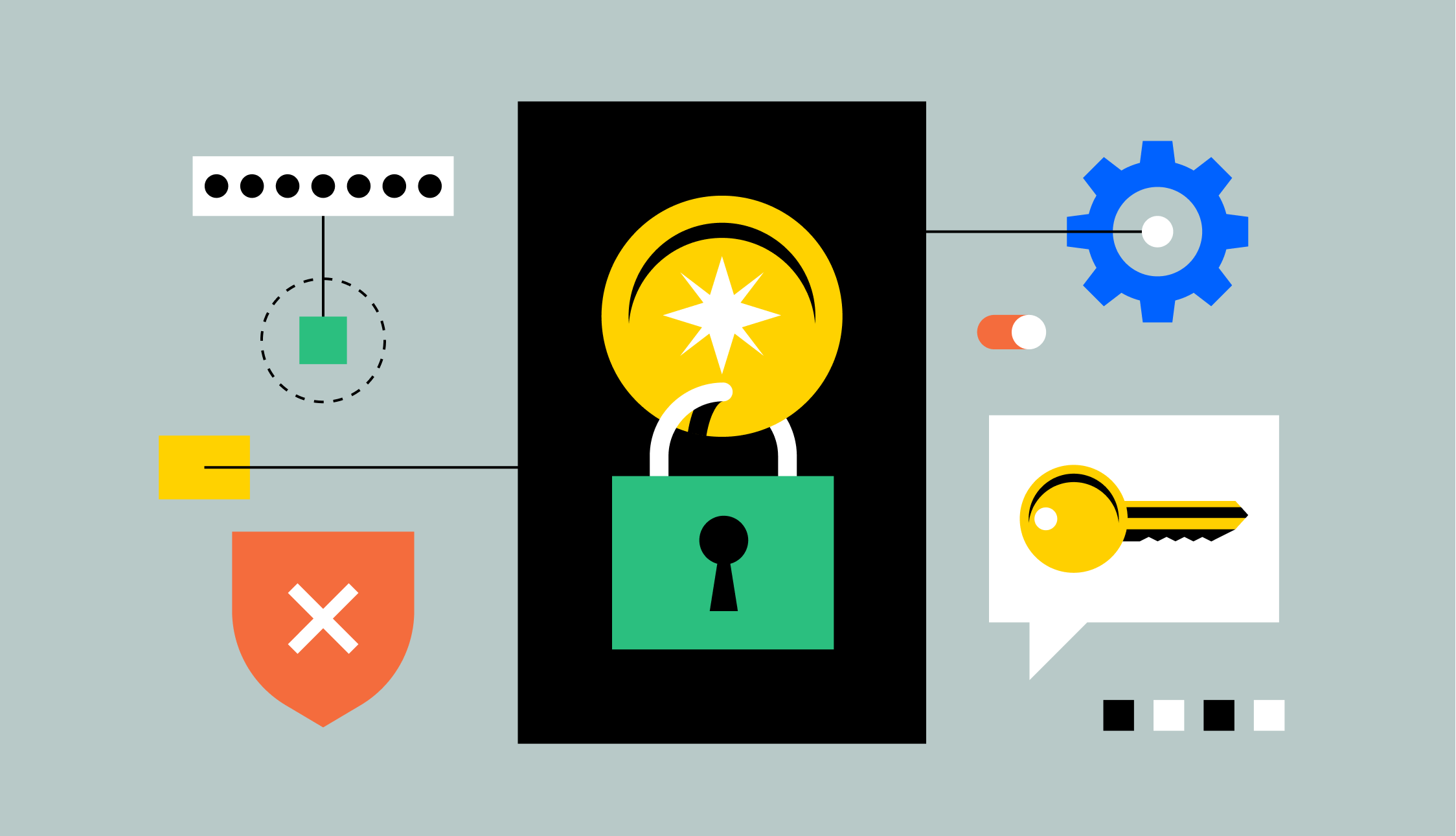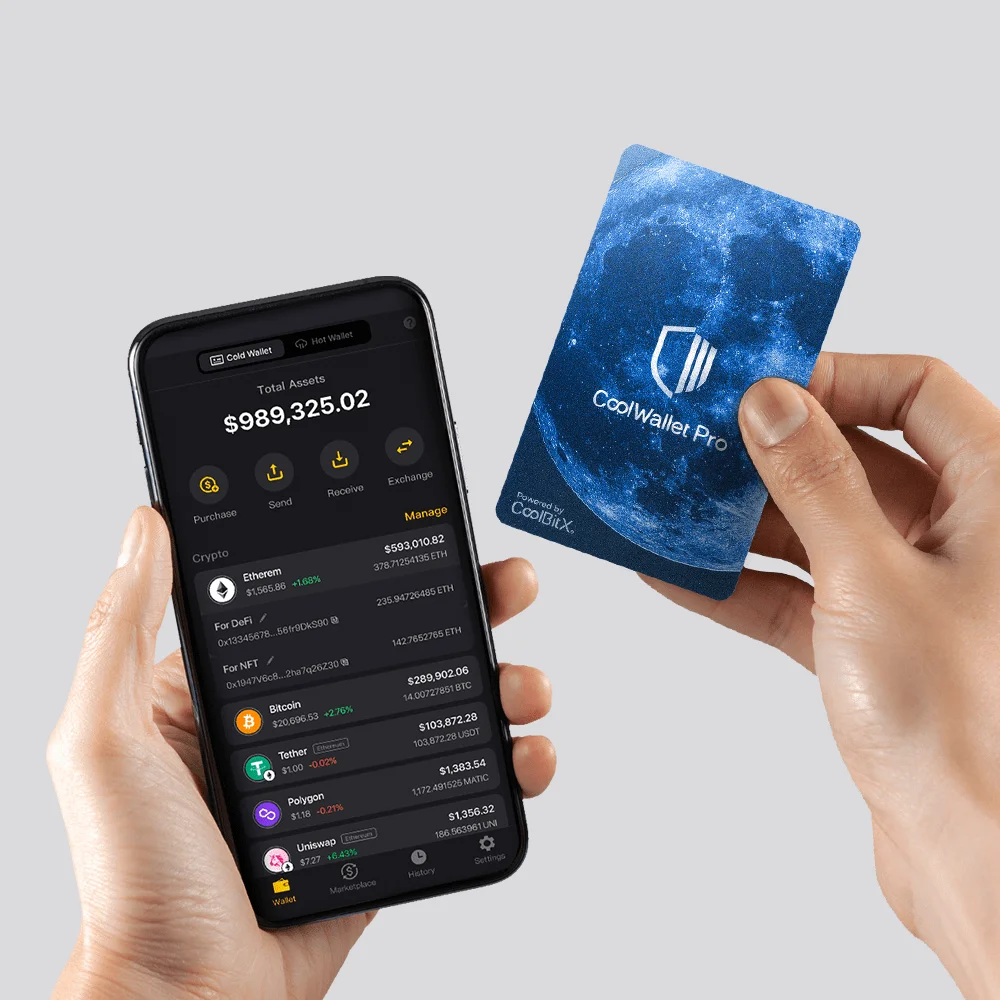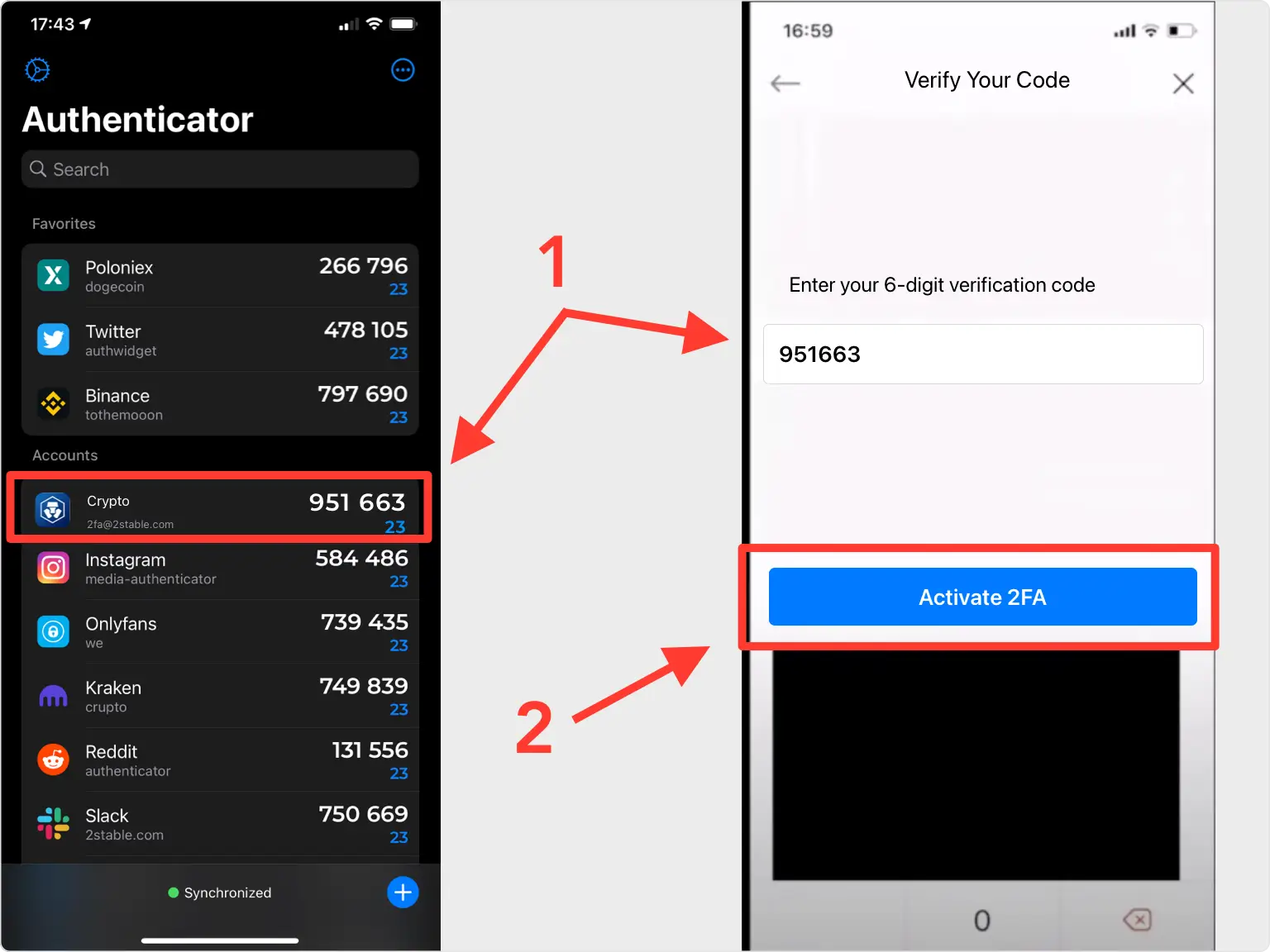How to keep your crypto safe isn’t just a good idea; it’s a must if you value your digital wealth. You’ve worked hard for your crypto. Now let’s lock it down. Whether you’re new to the game or a seasoned trader, these 7 security tips are your crypto’s new best friends. Dive in and find out how to transform your digital wallet into a fortress. Trust me, it’s simpler than you think to protect your coins from the wild west of the web. Let’s get to work and make sure you’re the only one spending your cryptocurrency.
Understanding and Protecting Your Crypto Assets
The Importance of Private Key Protection
Your digital wallet’s private key is like the master key to your online bank. If someone gets it, they own your coins. Keep it safe, always. Think of it like the secret code that unlocks your crypto wealth. Guard it like a treasure. It’s the one thing standing between you and a potential loss.
Selecting and Setting Up a Hardware Wallet
A hardware wallet is your crypto’s best friend. It’s a tough, dedicated device for storing crypto safely. Think of it like a personal vault. It’s not connected to the internet, and that’s good. Hackers can’t reach it easily. Set up might seem tricky, but just follow the steps. Write down your backup seed and store it securely. It’s a must-have for peace of mind.
Keep these tips in hand, and let’s dive deeper into each.
When protecting those keys, imagine them as the secret ingredients to your family’s prized recipe. If the recipe leaks, it’s not special anymore. In the world of crypto, your private key gives anyone who has it the power to control your funds. Just as you wouldn’t paste that secret recipe on your front door, never store your private key on a device that has access to the internet. It’s a risk not worth taking. Use paper, metal, or even a dedicated offline device to store it offline. And just like that recipe, you wouldn’t want to lose it—so back it up. Having a secure copy of your private key means you’ll always have access to your funds.

Now, onto hardware wallets. Many folks keep their crypto online or in “hot” wallets for quick access. But when it comes to security, hardware wallets are your golden ticket. Picture a fortress where your crypto is safe from online attacks—this is what using a hardware wallet is like. Think Ledger or TREZOR, two popular picks. These devices often come with clear instructions—follow them religiously. They will take you through the setup process step by step, ensuring your crypto is protected the right way.
Consider this: when securing your assets on a hardware wallet, the backup seed (a list of words given to you when you set up your wallet) is your savior if the device is lost or damaged. Keep that seed in a secure place—maybe a locked safe or a safety deposit box—and never on a computer or online. This physical backup is essential; it’s the foundation of your crypto security.
In all, personal attention to your keys and careful hardware wallet setup pays off. Protection like this can seem tedious, but it’s vital. You’re the frontline defender of your digital assets. Treat these tasks with the seriousness of guarding your wealth, and you’ll always stay a step ahead of trouble in the crypto world. Remember, keeping crypto safe isn’t just about the right tools—it’s about using them smartly.
Enhancing Security with Authentication and Storage
Implementing Two-Factor Authentication for Enhanced Safety
What is two-factor authentication for crypto? Two-factor authentication (2FA) adds a layer of security to your crypto accounts. This key practice protects you from hackers. They must have two types of credentials before they can access your account. With 2FA, even if someone steals your password, they still can’t enter your account. They’ll need the second factor. This might be a code from an app on your phone.
Think of it like your house. You have a lock on your door. If you add a second lock, it’s harder for thieves to get in. That’s what 2FA does for your crypto accounts. It’s that extra lock on your digital treasures. There are different kinds of 2FA. These include text message codes, app-based codes, and physical keys. For crypto, app-based codes or physical keys are safer. Text messages can be risky due to SIM swapping attacks. If you can, choose an authenticator app or a hardware token for 2FA.
To set it up, visit the security settings on your crypto account. Follow the steps they give to link 2FA to your account. Once it’s active, always use it when you log in or make big moves with your crypto. It’s like a safety belt for your digital money.
Cold Storage Solutions vs. Hot Wallets: Making the Right Choice
Hot wallets are online, which makes them easy to use but more exposed to risks. Cold storage solutions keep your crypto offline. They’re like bank vaults for your digital coins. Here’s the difference:
Hot wallets run on devices with internet, like phones and computers. They’re handy for regular use but are more open to attacks. When you connect to public Wi-Fi, you risk a lot. Always keep a small amount in hot wallets. Don’t use public Wi-Fi for crypto stuff. It’s not safe.
Cold storage keeps your crypto away from the internet. It’s a safe choice because hackers can’t reach it. Think of it as burying your treasure on a deserted island. Only you have the map – that’s your private key. Examples of cold storage include hardware wallets and paper wallets. Hardware wallets are like smart USBs. You can store loads of different cryptos on them. Paper wallets are more simple. They’re pieces of paper with your crypto keys printed on them.
Why choose cold storage? If you have a lot of crypto, cold storage protects it best. Hardware wallets might cost some money, but they’re worth it. Once you have one, all you need to do is set it up and move your crypto over. Keep your hardware wallet someplace safe, like a real safe or a safety deposit box.
Remember, losing the device or paper means losing your crypto if you don’t back up your keys. Always back up your wallet seeds. It’s like making a copy of your buried treasure map.
Use these tips to keep your crypto safe. Use strong 2FA and the right storage, and sleep well knowing your digital coins are secure.
Proactive Measures Against Emerging Threats
Recognizing and Avoiding Phishing Scams
Phishing scams are sneaky. They trick you into giving away your crypto keys. To stop this, know how scams look. They often use fake emails or websites. These can look real, but they are traps. Always check the sender’s email before you click anything. It should match the real company’s email exactly. Use bookmarks for crypto sites you trust. This helps you avoid fake sites.
If an offer seems too good, it probably isn’t true. Don’t trust strangers promising big returns for your crypto. Phishing also happens on social media. Don’t click on odd links or messages from people you don’t know. When in doubt, reach out directly to the service or company through known channels.
The Role of Regular Software Updates in Safeguarding Your Crypto
Keep your software up to date. This protects your crypto from thieves. Software updates fix security holes. Without these updates, hackers can sneak in. It’s like fixing a broken lock on your door. Don’t put off updates. Delay can invite trouble. Make it a habit to check for updates often.
Use antivirus software too. It’s a strong guard for your computer. Someone might try to install bad software on your machine. Antivirus spots and stops this. Link your crypto accounts and wallets to devices you trust. Updates and antivirus work great together. They keep your crypto safe round the clock.
Remember, staying safe takes ongoing effort. Always be ready to learn and take smart steps. This way, you’ll stay ahead of the bad guys trying to take what’s yours. Keep your guards up, and keep your crypto safe.
Best Practices for Secure Crypto Transactions and Recovery
Adopting Secure Transaction Protocols and Safe Connection Practices
Are you sure your crypto transactions are safe? Let’s start with secure transaction protocols. They make sure no one else can access your digital coins.
First, always check you’re on a trusted exchange. How can you tell? Look for a padlock icon near the web address. It means the site is secure. Next, use secure internet connections. This is vital. Never use public Wi-Fi for crypto trades. Hackers love these networks. It’s like giving them a peek at your secret keys.
Now, let’s talk about two-factor authentication (2FA) for your crypto accounts. How important is it? It’s like adding a deadbolt to your doors. You need something you know (your password) and something you have (like your phone) to get in. Most times, this stops hackers, even if they guess your password.
For mobile wallets, be sure your device has a lock feature. Keeping your phone safe is as crucial as protecting your physical wallet. Always lock it up tight with a passcode or biometric, like your fingerprint. Remember, your mobile wallet is only as safe as your phone.
Folks often ask, “What about hardware wallets?” Yes, they’re among the most secure ways to store crypto. Why? They keep your coins off the internet. Imagine a vault that’s locked away from hackers. That’s what a hardware wallet does for your crypto.
Encryption for crypto storage is also key. Think of encryption like a secret language for your crypto. Only you and the intended recipient know how to decode it.
Lastly, to keep your crypto secure, update your software. Why? Each update can fix security holes. Hackers love old software. It’s easier for them to break in.
Formulating a Recovery Plan for Lost Access to Cryptocurrency Accounts
What if you lose access to your accounts? Don’t panic. You have a backup plan, right? If not, let’s make one.
First things first: back up your wallet seeds. What are they? They’re like a master key to your crypto wallet. Write them down and store them somewhere safe. If you lose your wallet, they’re your last hope to get your crypto back.
Keep your passwords strong and secure, and manage them well. Use a combination of letters, numbers, and symbols. And never, I repeat, never share them.
Have you heard of multi-signature wallets? Here’s why they’re cool. They need more than one key to approve a transaction. It’s like having multiple locks on your treasure chest.
If you ever feel stuck, know there are crypto custody services. They help keep your coins safe. But yes, you must trust them. They act like banks for your digital cash.
Lastly, know about SIM swapping and defend against it. How? Contact your phone carrier. Set up a PIN or password for your phone account. This makes it harder for thieves to take over your phone number.
By following these tips, you’re building a fortress around your crypto. It’s not just about locks and keys. It’s about habits. Safe habits keep your digital treasure out of thieves’ hands.
In this post, we covered how to guard your digital coins. Keeping your private key safe is key, and picking the right hardware wallet can make a big difference. We also talked about why two-factor authentication boosts safety, and the pros and cons of cold storage versus hot wallets for storing your stash.
We can’t forget about dodging those tricky phishing scams and staying on top of software updates to keep our crypto safe. And when it comes to making deals, following safe transaction rules and having a backup plan for lost access is crucial.
I’ll leave you with this: protecting your crypto assets isn’t hard, but it needs your focus and smart choices. Stay sharp, use these tips, and keep your digital treasure locked down tight!
Q&A :
How can I ensure the security of my cryptocurrency?
Securing your cryptocurrency involves a combination of practices focused on safeguarding your digital assets. You should use strong, unique passwords for your crypto wallets and exchange accounts, and enable two-factor authentication (2FA) for an extra layer of security. It’s also critical to keep your private keys offline in a hardware wallet or on paper, away from potential online threats. Ensure that your computer and any device that you use for handling crypto transactions are free from malware and are securely updated. Stay informed about the latest security measures and be wary of phishing attempts and suspicious links.
What are the best types of wallets to use for keeping crypto safe?
The safest types of wallets for storing cryptocurrency are typically hardware wallets and paper wallets because they store your private keys offline, eliminating the risk of online hacking. Hardware wallets are electronic devices that securely store your crypto, and they can come with backup and restore features. Paper wallets, on the other hand, are a form of cold storage where private and public keys are printed on a piece of paper. It’s essential to keep these physical wallets in a safe and secure location. Software wallets can also be safe if they are from reputable sources and you follow best practices for security.
What common mistakes should I avoid to protect my crypto?
One of the most common mistakes in cryptocurrency security is failing to back up wallet information, such as your private keys and recovery phrases. Without backups, you risk losing access to your assets if you lose or damage your hardware wallet or forget your credentials. Additionally, avoiding the use of public Wi-Fi when conducting transactions, not double-checking recipient addresses, and falling for phishing scams are critical mistakes to avoid. Always conduct transactions on secure, private networks and remain vigilant against unsolicited communications claiming to require your crypto information.
Can two-factor authentication significantly improve crypto security?
Yes, two-factor authentication (2FA) can significantly improve the security of your cryptocurrency accounts by providing a second layer of verification beyond just a password. This makes it much harder for unauthorized users to gain access to your funds since they would need both your password and access to your 2FA method, which often involves something you know (a password), something you have (a phone or token), or something you are (biometric verification). Make sure to enable 2FA on all platforms that offer it and consider using a hardware token or an authenticator app for higher security.
How do I protect myself from cryptocurrency scams?
To protect yourself from cryptocurrency scams, it is vital to perform due diligence before investing in any project, including checking the credibility of the project leaders and the authenticity of the project’s website or social media presence. Be skeptical of offers that seem too good to be true, like guaranteed returns. Always keep your private keys secret and never share them with anyone or input them into questionable websites. Stay informed about the latest types of scams in the crypto space and think twice before clicking on unverified links or emails. Use established and reputable exchanges for trading and storing cryptocurrencies.



